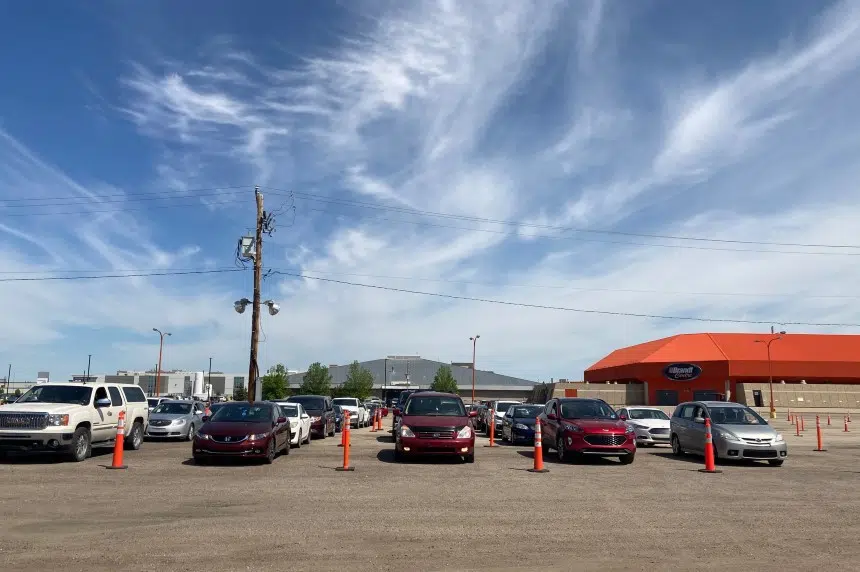If there was one common theme among those waiting for a mixed vaccination at Regina’s Evraz Place on Wednesday, it was a shared trust in science.
“It’s going to be a mixed cocktail because my first jab was an (AstraZeneca) and this one is going to be Pfizer, but I trust the scientist and the research that’s been done. I am not going to be listening to some beer-drinking person on Facebook or that garbage that they are putting out there. So that is why I am here,” said Brian Hudyma.
“I want to live a few more years rather than end up in intensive care with COVID.”
On Tuesday, the country’s National Advisory Committee on Immunization approved the practice of following a first dose of AstraZeneca with mRNA vaccines like Pfizer and Moderna. The news was welcomed by the province’s chief medical health officer, who said it would be “full steam ahead” with giving second doses.
Alexandra Sutter was among those who had AstraZeneca for her first dose. She was thrilled to be eligible for a second shot sooner than expected.
“I felt that that’s a decision that the experts need to make and I’m going to just trust what they say because there’s people all over the world working on it. I’ll go with what they say,” Sutter said.
Sehjal Bhargava and Alyssa Denton also received an initial shot of AstraZeneca. The two young women are medical students in Regina who say they were putting their faith in science and experts.
Bhargava weighed a few factors in her decision to get an mRNA vaccine for her second shot.
It has been said the optimal time to receive a second dose of AstraZeneca is 12 weeks after the first jab. The first clinics offering second doses of that vaccine do not open until Monday.
She referenced a recent study that says mixing vaccines triggers a more robust immune response. As well, she wanted to see her family outside Regina sooner.
“I think it was just a timeline that worked well for me. It allows me to be able to have that ability to travel between cities with a bit more freedom and confidence,” Bhargava said.
Denton said she works in a high-risk field, anaesthesia, so she wanted to get fully vaccinated.
“I don’t care what it is. Just give me one,” Denton said.
What about masks?
While the indoor mask order could be lifted as soon as July 11, few seemed ready to ditch the face coverings right away.
Many have accepted that masks will be around in the future for some occasions like gathering in crowds or travelling by air, or in cases where it’s not clear if others have been vaccinated.
“I don’t have an issue accommodating them if they want us to keep it on,” said Len Marinos. “We’ll be seeing masks around for quite some time.”
Denton expects a “transition period” now that masks have become a habit.
“It just seems like such a sign of respect for other people and their safety, not so much our own,” she said.
— With files from 980 CJME’s Mattea Columpsi and Joseph Ho







